How can you know if your relationship is happy and healthy? Unfortunately, there are no rules or guidelines that dictate a healthy relationship. Yes, you will have fights, you will want some alone time and you may even be more interested to check your phone more than talking to your partner at times. But does it make your relationship unhealthy and toxic? No. Relationships are as unique as we are. And what makes your relationship healthy depends on you and your partner.
One of the most powerful relationship skills you can have is knowing what a healthy relationship looks and feels like.
Most people know what hasn’t worked for them, but have a hard time defining and feeling confident picking a healthy relationship. This is especially tricky because you know that healthy relationships are not “perfect” relationships!
Dr. Judith Wallerstein did some fantastic research about the commonalities of healthy relationships. She was the first researcher to ask what healthy relationships actually felt like to the people in them.
Her primary finding was that a healthy relationship feels like a unique, co-created world that the two partners share. Every “world” is different, but this qualitative presence exists in all of the healthy relationships she studied.
How do you know if you’re in a relationship that has this quality, even when it’s hard? Or if you’re beginning a new relationship that has this potential?
The thoughts you have about your relationship in the privacy of your own mind are a great indicator of your overall relationship quality.
Here are 9 thoughts you have about your relationship that indicate that it’s healthy and will be long-lasting:
1. My partner is the person I most want to talk to about my best and worst days.
Healthy relationships have few places they can’t go and a few things that can’t be spoken about. There is a wide breadth of emotions that can be shared.
If you look to your partner at the end of your good and bad days, this is a good sign.
It means that you inherently feel your partner can understand your experiences. It also means that you trust how your partner will process your experiences and that you have a shared value system in which experiences are processed.
Related: 6 Essential Qualities of the Happiest Relationships
2. I trust and value how my partner helps me solve problems.
If you look to your partner as a resource to solve problems, it likely means that you inherently feel there is a shared value system through which you organize the world.
A shared value system is one of the biggest indicators for long term success and happiness in a relationship. This is because values organize how we make important decisions. Values also dictate how we solve problems.
The act of solving problems together strengthens your bond. If you implicitly look to your partner to solve problems, this is likely a sign of a healthy relationship.
3. I know my partner is inherently receptive to my needs and feelings.
Feeling seen, heard and understood is a sign of a healthy bond. This experience of being understood underlies all healthy attachment systems.
If you find yourself assuming that your partner is inherently receptive to you, this is a sign that there is trust between you. You likely have a low level of defensiveness around your partner, which leads to lower conflict and higher levels of intimacy and satisfaction.
Note that it is important that you feel your partner is receptive not just to your presence in general, but to your needs and feelings. Healthy relationships have space for both people’s needs and a broad range of feelings. Some relationships can feel receptive until one person expresses a need or a difficult feeling.
One sure way to build real trust is to be open and clear about your needs; a healthy relationship is one that will remain receptive when needs are presented.
4. I trust that in big life decisions, my partner and I are guided by a shared set of values.
A long term relationship has to survive a lot of change and unexpected circumstances in life.
When unexpected challenges or changes come up, you and your partner will refer to your core values to decide on your course of action. When there is a shared set of values, each person will independently either arrive at a similar conclusion and/or relating to the decision their partner came to when they are different.
This means that conflict over life paths and choices will be minimized. When there are differences in opinion, they are not the kinds of differences that lead to a massive questioning of the relationship or your partner.
5. Even when we are angry with one another, we both still feel the trust and care we have for one another.
In healthy relationships, conflict is possible and constructive because it is presumed to be superseded by a feeling of trust and goodwill.
Healthy relationships are not devoid of conflict or hurt feelings. Healthy relationships survive because disappointment or misunderstandings feel smaller than the trust and care that remains intact even amidst the conflict.
Related: The 7 Fundamental Elements Needed In A Healthy Relationship
6. When I’m sick, I’m comfortable having my partner around.
Some people are more comfortable being vulnerable, accepting care and comfort, and being less in control than others. Being sick, no matter who you are putting you in this position! While some people prefer being alone when they’re sick, we all need some assistance and care when we can’t perform in our healthy state.
If your partner is one of the people you are comfortable having around when you’re sick, it’s an indicator that you’ve developed trust and safety in the relationship.
The kind of safety it takes to be less than your best self is an important predictor of other functions in the relationship.
7. I feel comfortable being my best self around my partner.
Your partner should bring out the best in you! Your relationship is functioning well when there is room for your best and most authentic self.
If you feel that you have to be “smaller” to protect your partner in some way, this is a warning sign. Your partner should delight in you shining your brightest light. This requires that your partner has their own self-confidence and is not intimidated by you and is not in competition with you.
8. I feel that my partner has a good understanding of their history and “where they came from.”
We all project our “stories” onto our partners. If you haven’t taken the time to reflect on your story, you tend to project blindly onto your partners in ways that make it difficult to experience that person authentically.
This is more problematic if you or your partner have any trauma or unexamined pain in your history. These experiences form our expectations of the world and other people in a way that can be distorted and rigid.
Two people who have taken the time to reflect on the story of their lives will contribute to mental flexibility and the ability to see each other clearly.
9. I feel that my partner is not in denial of major parts of their personality, feelings or needs.
You want a “whole” person as your partner! A whole person is someone who is not suppressing or denying huge parts of their reality, their past, or their needs.
Once you’ve known someone for some time, you can gain a sense of the degree to which they repress or deny parts of their reality. Someone with addiction problems, for instance, is almost always coping with a part of their reality via avoidance. Someone who can’t talk about periods of their life and/or convey a coherent story about where they came from and how they got to this point in their life is likely in denial.
Related: Forget the Listicles: A Happy Relationship Depends on Just One Thing
These thoughts speak to four major domains of relationship wellness:
1. Your perception of your partner as a healthy, mature individual.
2. Your perception of yourself as a healthy, mature individual in the relationship.
3. Your perception of the functioning of the connection between you.
4. Your perception of the fit between the two of you as unique individuals.
If you resonate with most or all of these thoughts, your relationship is very likely a healthy one!
If you resonate with some but not all of these thoughts, investigate whether there is constructive work that can be done to bring your relationship into the fully functioning mode.
Written By Perrin Elisha Originally Appeared On YourTango
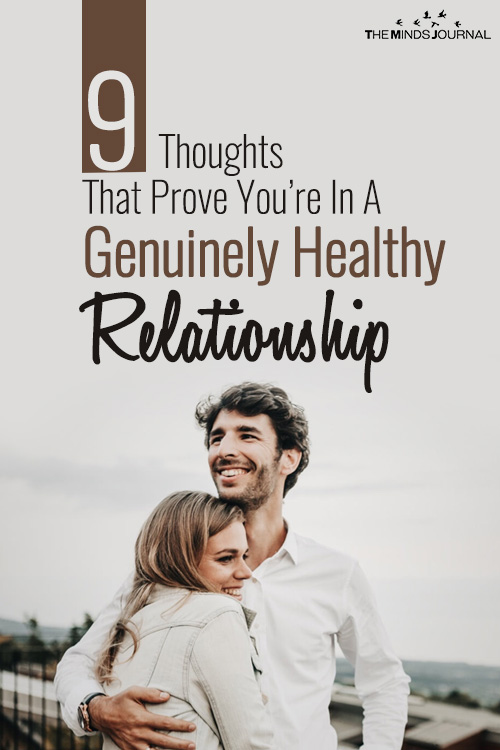
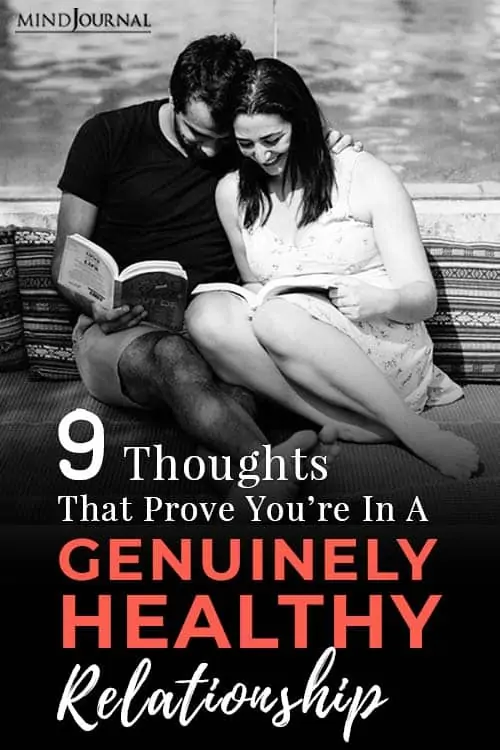
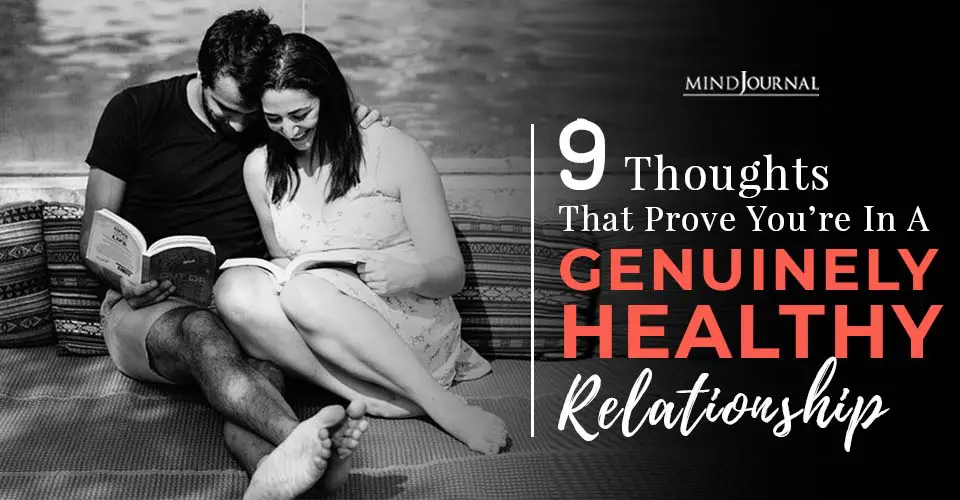
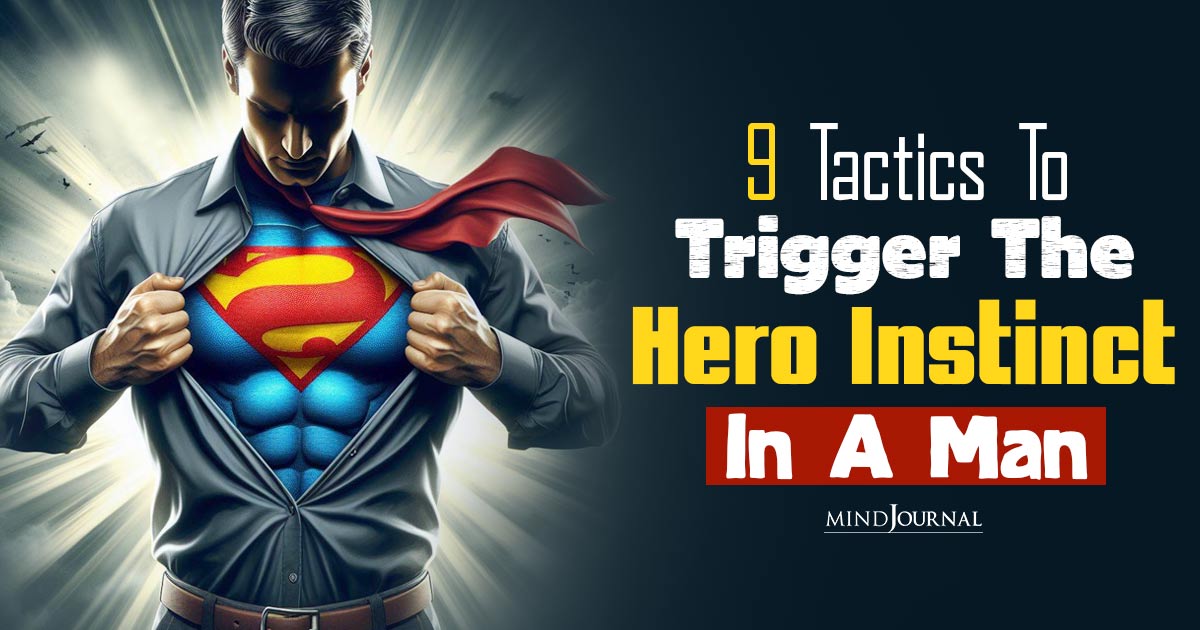

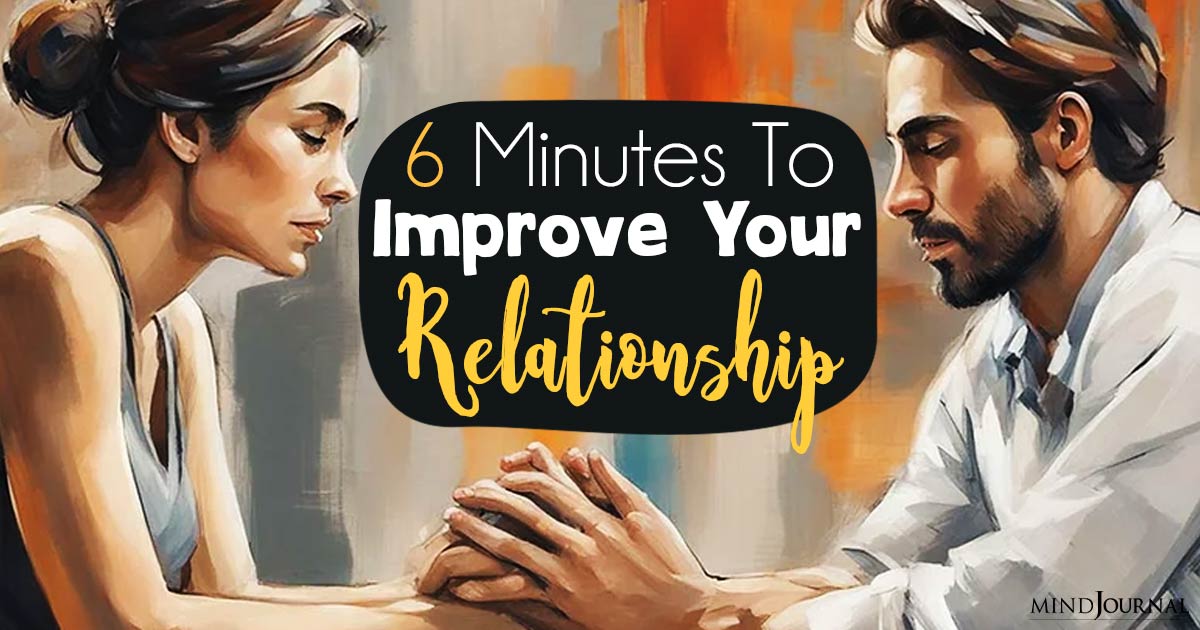
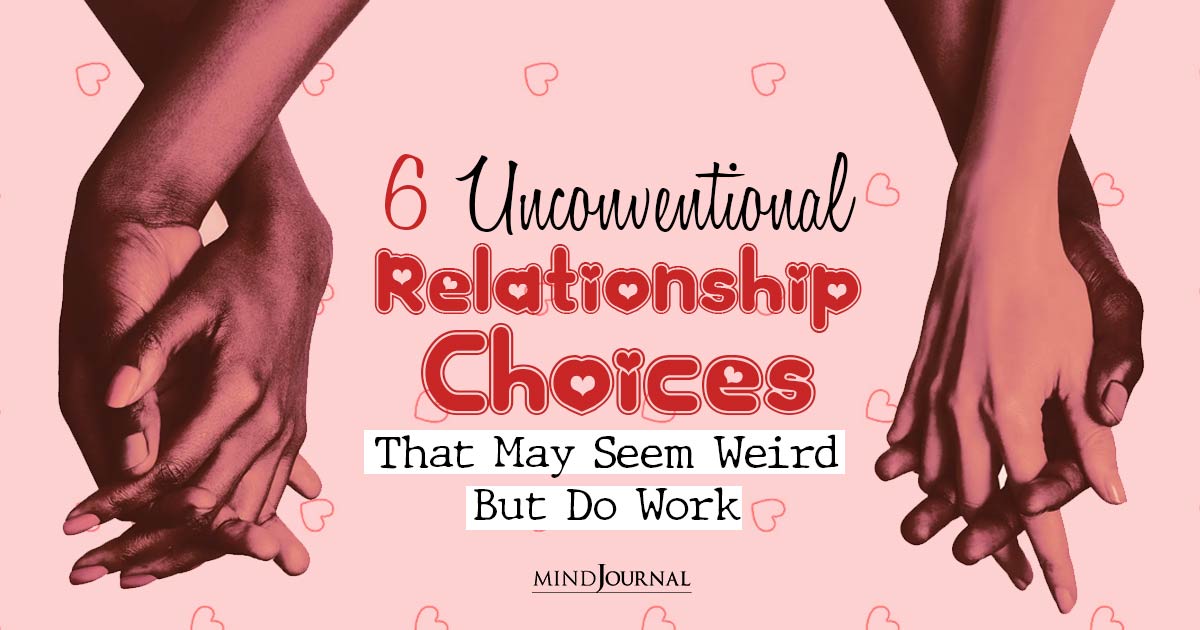
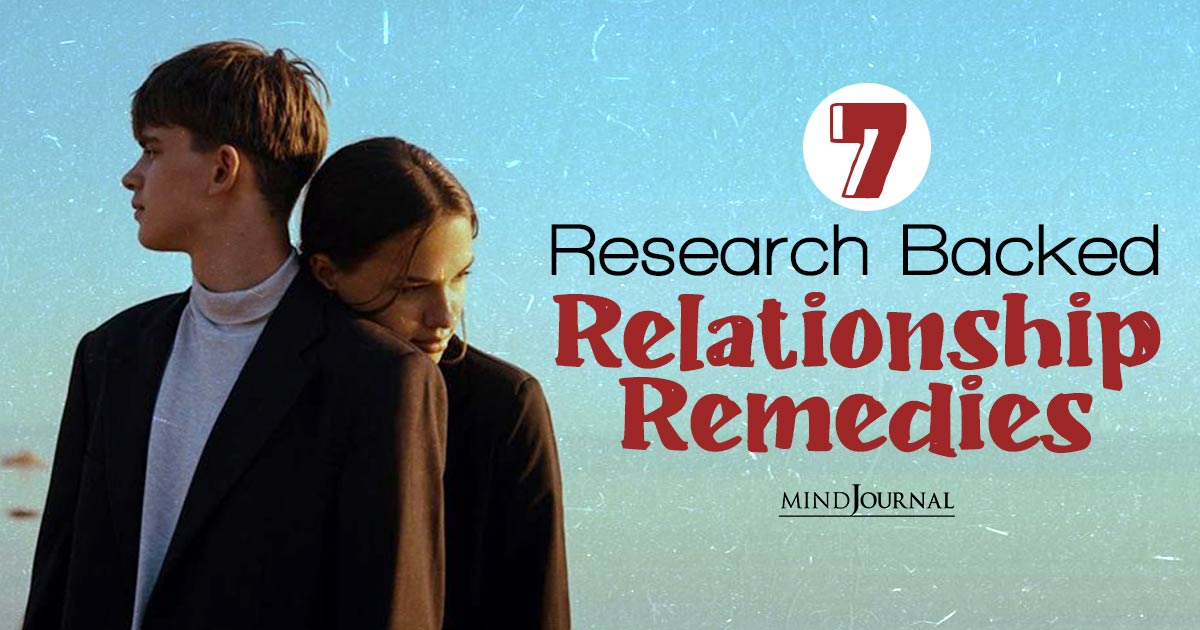
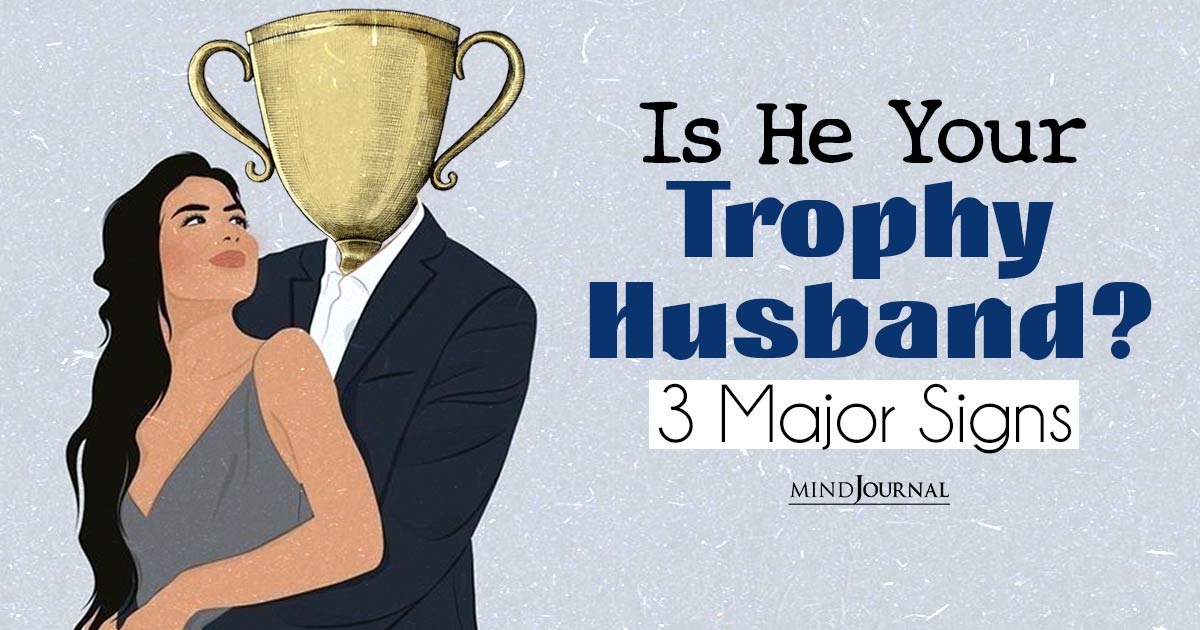
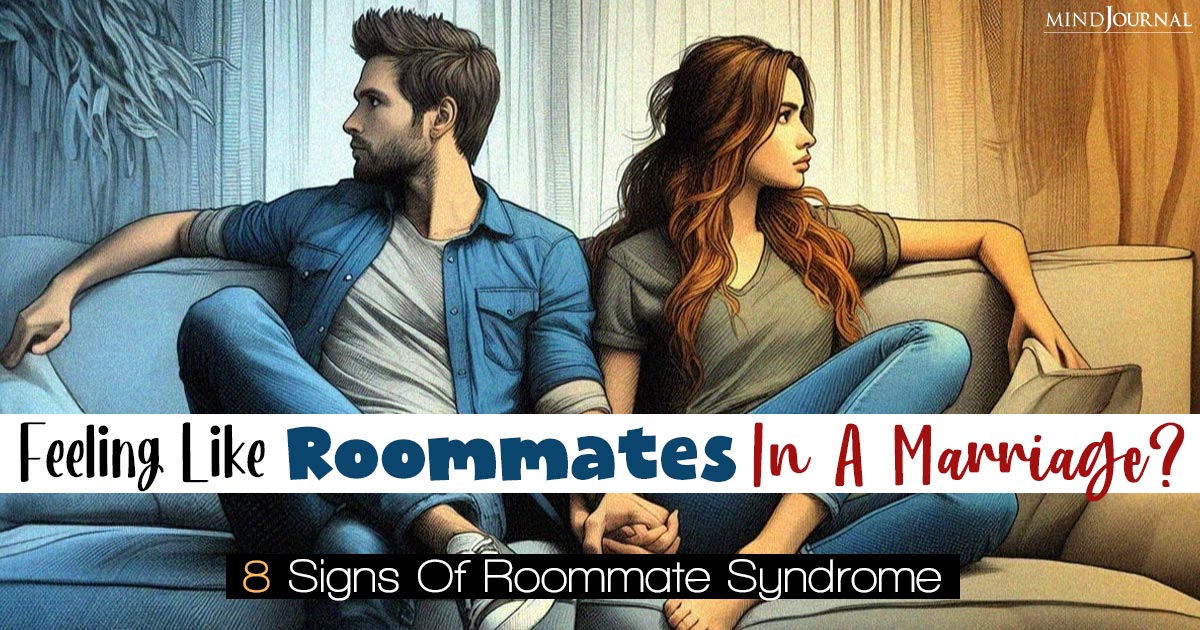
Leave a Reply
You must be logged in to post a comment.